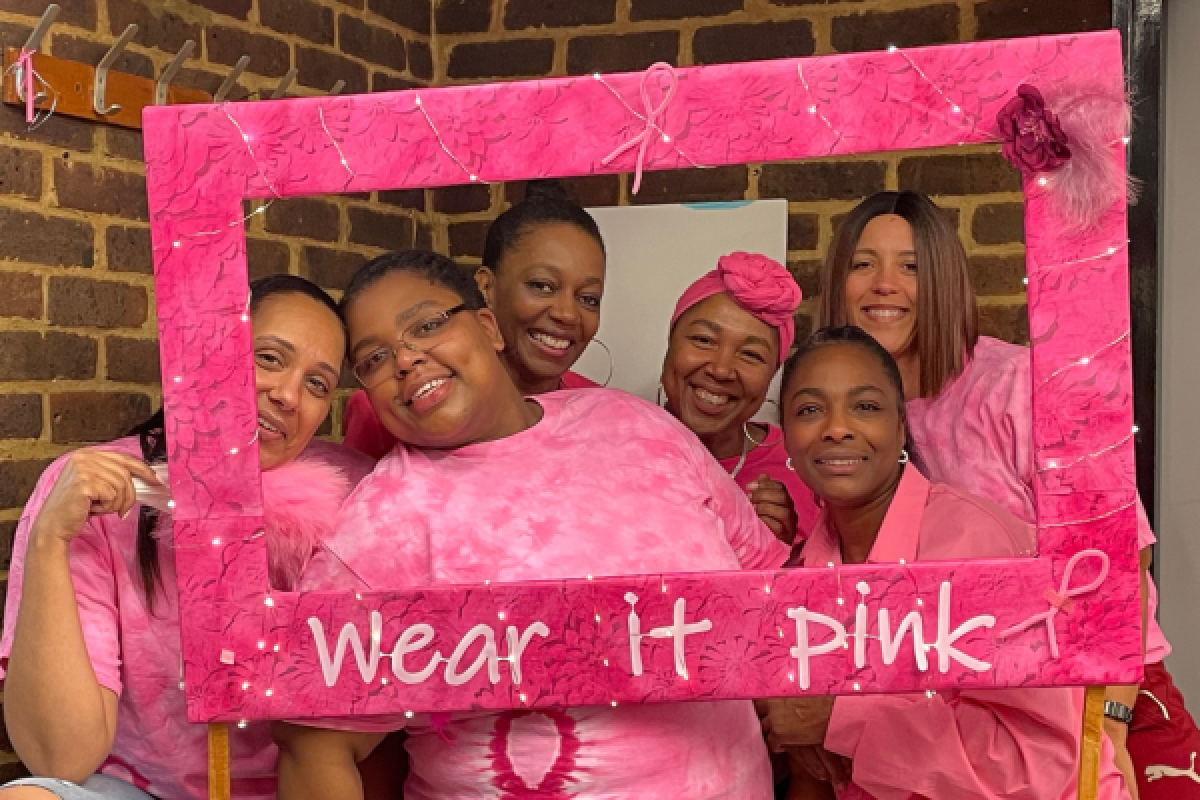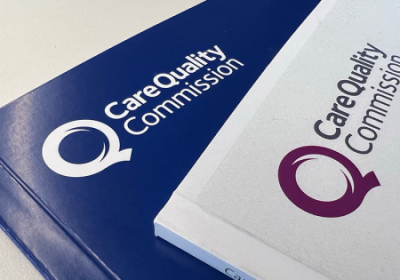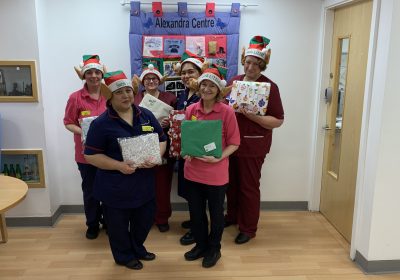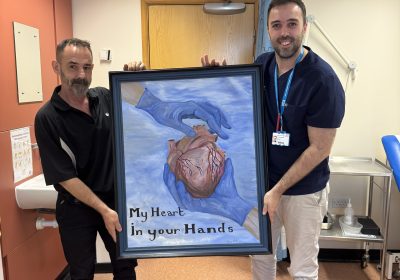- Speak to Breast Cancer Now’s expert nurses now by calling our free and confidential Helpline on 0808 800 6000 or visit forum.breastcancernow.org
New research commissioned by Breast Cancer Now to coincide with the launch of Breast Cancer Awareness Month today reveals over two in five (44%) UK women don’t check their breasts regularly for possible signs and symptoms of breast cancer.
The research and support charity is calling on all women to ‘get to know their normal’.
With one in ten (10%) women in the UK reporting to have never checked their breasts – which varies region to region, including increasing to 16% for women living in London – and with 13% only checking once a year or less, the charity is urging women to prioritise regular breast checking and familiarise themselves with the signs and symptoms of the disease, to help them spot any new or unusual breast changes, so they can get them checked out by a GP.
According to the YouGov findings, of the women who do check their breasts regularly for possible signs and symptoms of breast cancer, almost a third (31%) don’t feel confident that they would notice a breast change. Furthermore, only 52% of women said they would inform their GP in the first instance, if they noticed a new or unusual change in their breast(s), while 43% of women would want to seek advice, support or reassurance from someone else first.
This is cause for deep concern given around two-thirds of breast cancers in England are found when women detect a new or unusual breast change and get this checked out by a GP***, and the earlier breast cancer is diagnosed, the better the chance of successful treatment, and lives potentially being saved from this devastating disease.
When asked what stops or prevents women**** from regular breast checking, multiple barriers were revealed, including: forgetting to check (48%), not being in the habit of checking their breasts (36%), lacking confidence in checking their breasts (16%) and not knowing how to check their breasts (13%).
Manveet Basra, associate director, public health, inclusion and awareness, at Breast Cancer Now, said: “It’s deeply concerning that over two in five women in the UK aren’t regularly checking their breasts, and that only half of UK women (52%) are reporting a possible sign or symptom of breast cancer to a GP in the first instance.
“It’s clear more needs to be done to educate and support women to ‘know their normal’ and Breast Cancer Awareness Month presents a vital moment to spread these important breast health awareness messages.
“At Breast Cancer Now, we want every woman to know the importance of regular breast checking, and the many different signs and symptoms of breast cancer, so they feel empowered to regularly check their breasts, and get any new or unusual breast changes checked by a GP, along with attending NHS breast screening when invited, and breast checking in between their screening appointments.
“This is so vital when around two thirds of breast cancers in England are found when women detect anew or unusual breast change and get this checked out by a GP, and the earlier breast cancer is diagnosed, the better the chance of successful treatment, and lives potentially being saved from breast cancer.
“With the most notable barrier to women regularly breast checking being that they forget, we’re reminding women to get it back on their agenda. Checking your breasts only takes a few minutes and there’s no right way to check, as long as you’re doing it regularly.
“This could be as part of your self-care routine while getting dressed, showering or applying moisturiser. It’s important to check your whole breast area, your armpits and up to your collarbone (upper chest) for changes. At Breast Cancer Now, we say, it’s as simple as TLC: Touch, Look, Check.”
Breast cancer can cause a number of signs and symptoms which include:
- A lump or swelling in the breast, upper chest or armpit
- A change to the skin, such as puckering or dimpling
- A change in the colour of the breast – the breast may look darker, red or inflamed
- A nipple change, for example it has become pulled in (inverted)
- Rash or crusting around the nipple
- Unusual liquid (discharge) from either nipple
- Changes in size or shape of the breast.
On its own, pain in your breasts is not usually a sign of breast cancer, but look out for pain in your breast or armpit that’s there all or almost all the time.
Although it is rare, men can get breast cancer and the most common symptom of breast cancer in men is a lump in the chest area.
Visit breastcancernow.org/checking for more information on the signs and symptoms of breast cancer. If you’re worried about breast cancer or have a question about breast health, Breast Cancer Now is there to support you every step of the way.
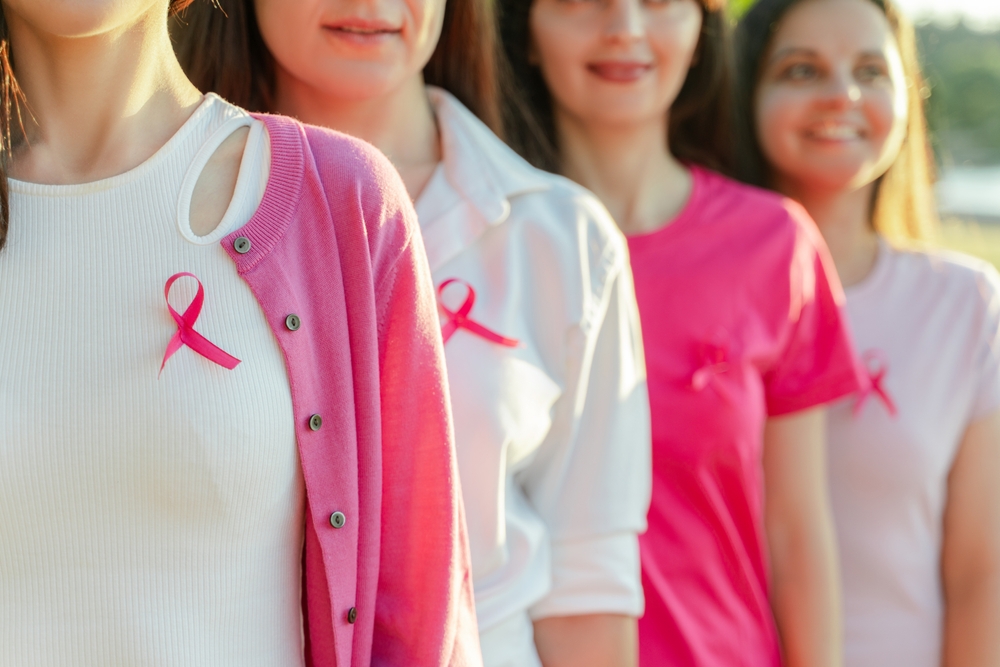
About Breast Cancer Awareness Month
The most common cancer globally with around 2.3m new cases every year, breast cancer represents one in eight cancer cases in both sexes and a quarter of all cancers in women.
With one in six cancer deaths in women worldwide, breast cancer is also the leading cause of cancer deaths among women globally.
October is Breast Cancer Awareness Month, an annual campaign to highlight ways to minimise the risk of developing the disease and to spot any signs you could have contracted it.
Adopting healthier lifestyles
About one in four breast cancers can be prevented by modifying risk factors and adopting healthier lifestyle choices. The most important lifestyle choices to consider are to exercise regularly, to maintain a healthy weight and to avoid alcohol consumption. Recent studies have shown that maintaining a balanced diet and body weight can affect breast cancer risks for women 10, 20 or even 30 years later.
Breast awareness
Healthy lifestyle choices are important but not enough alone. We must regularly look out for any breast abnormalities and seek medical advice with any concerns. This is known as breast awareness. Some women prefer to perform self-examinations. This can help. But the most important action is to be routinely monitoring our breast for any abnormality and reporting any concerns to your health care provider.
Touch, look, check
Breast cancer can affect anyone, so it’s important to check yourself regularly and get to know what’s normal for you. If you’re wondering how to be more breast aware, it’s as simple as TLC: Touch, Look, Check.
Could you help us spread the word this October? We want more people to start checking their breasts regularly. Talking to your friends, sharing things on social media or telling your colleagues about it at work – it all helps.
Have you got 15 minutes to tell us how breast cancer has impacted your life?
Breast cancer isn’t always easy to talk about. But Breast Cancer Now is listening. The Big Breast Cancer Survey is all about understanding your experience better. The charity wants to get an honest, unvarnished picture of the realities of breast cancer right now.
Breast Cancer Now is creating its next strategy – the plan it will use to guide its work over the coming years. And BCN wants the experiences of people affected by breast cancer to be at the heart of it.
This is your chance to have your voice heard. The more BCN knows, the more it can do to make sure everyone affected by breast cancer lives and is supported to live well.
Wear it pink
Wear it pink is back for Breast Cancer Awareness Month, and Breast Cancer Now would love for you to take part!
You’d be joining thousands of people across the UK who’ll be wearing pink on Friday October 18 – at work, at school or in their community. However you wear it pink, every penny you raise will make a difference.
All you need to do to get started is order your free fundraising pack today. It includes fantastic resources, including decorations, tips and ideas as well as a donation box.
And if you need any help, just email wearitpink@breastcancernow.org!
https://breastcancernow.org/wear-it-pink/sign-up-for-wear-it-pink
* Regularly checking your breasts refers to checking at least once a week, once a month or at least once every 6 weeks. All figures, unless otherwise stated, are from YouGov Plc. Total sample size was 2,137 females. Fieldwork was undertaken between 10-12 September 2024. The survey was carried out online. The figures have been weighted and are representative of all GB females (aged 18+).

